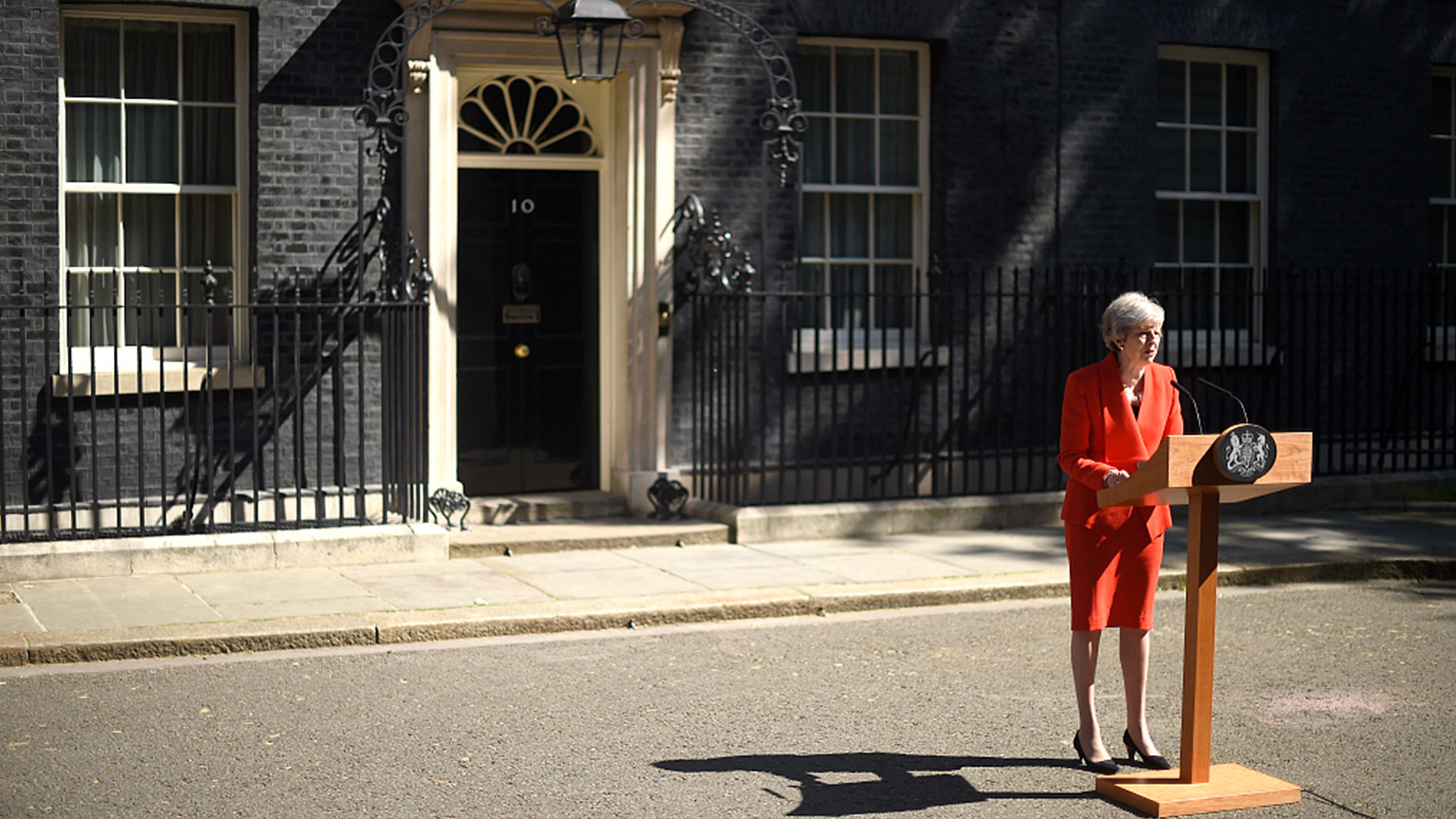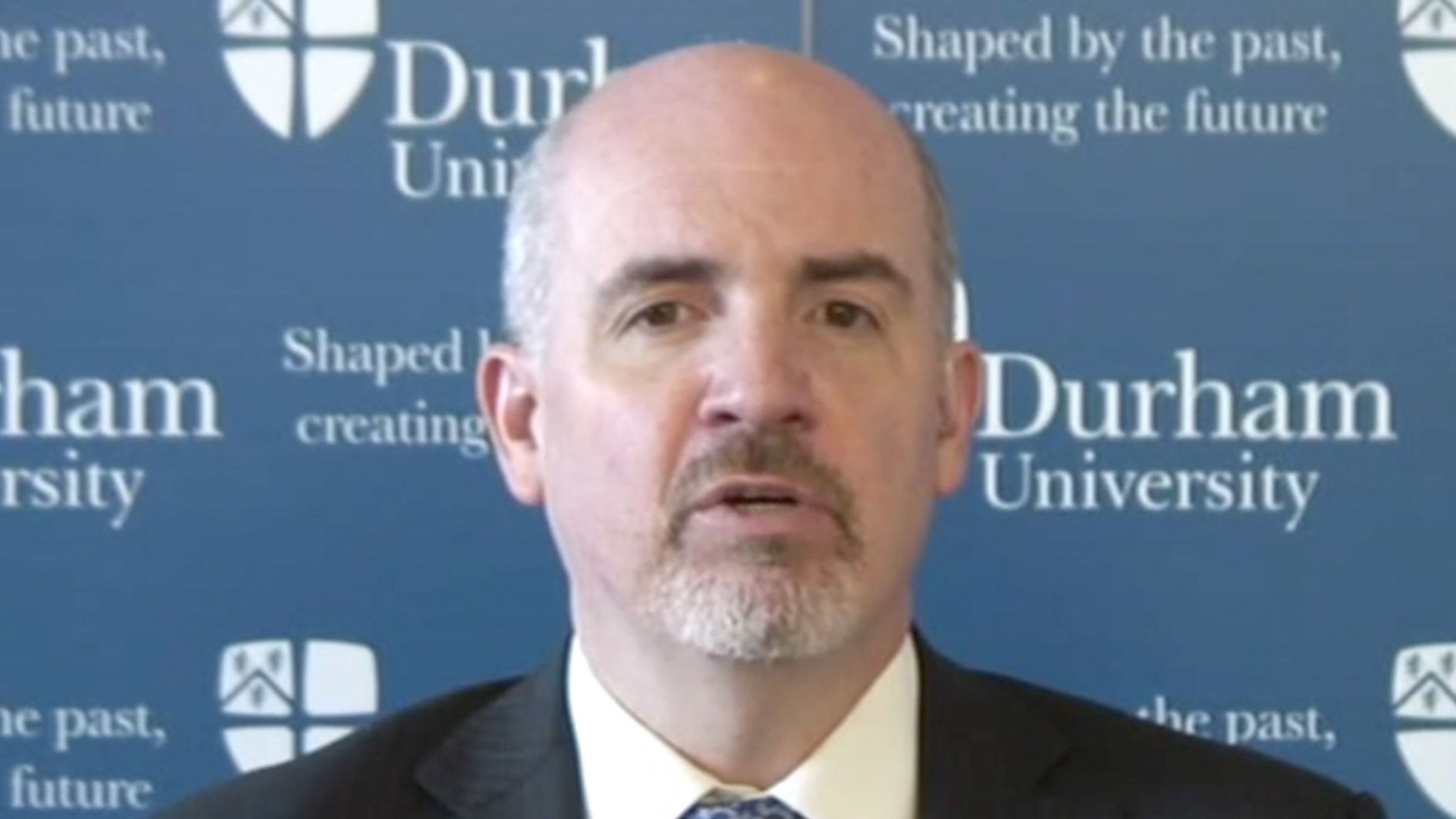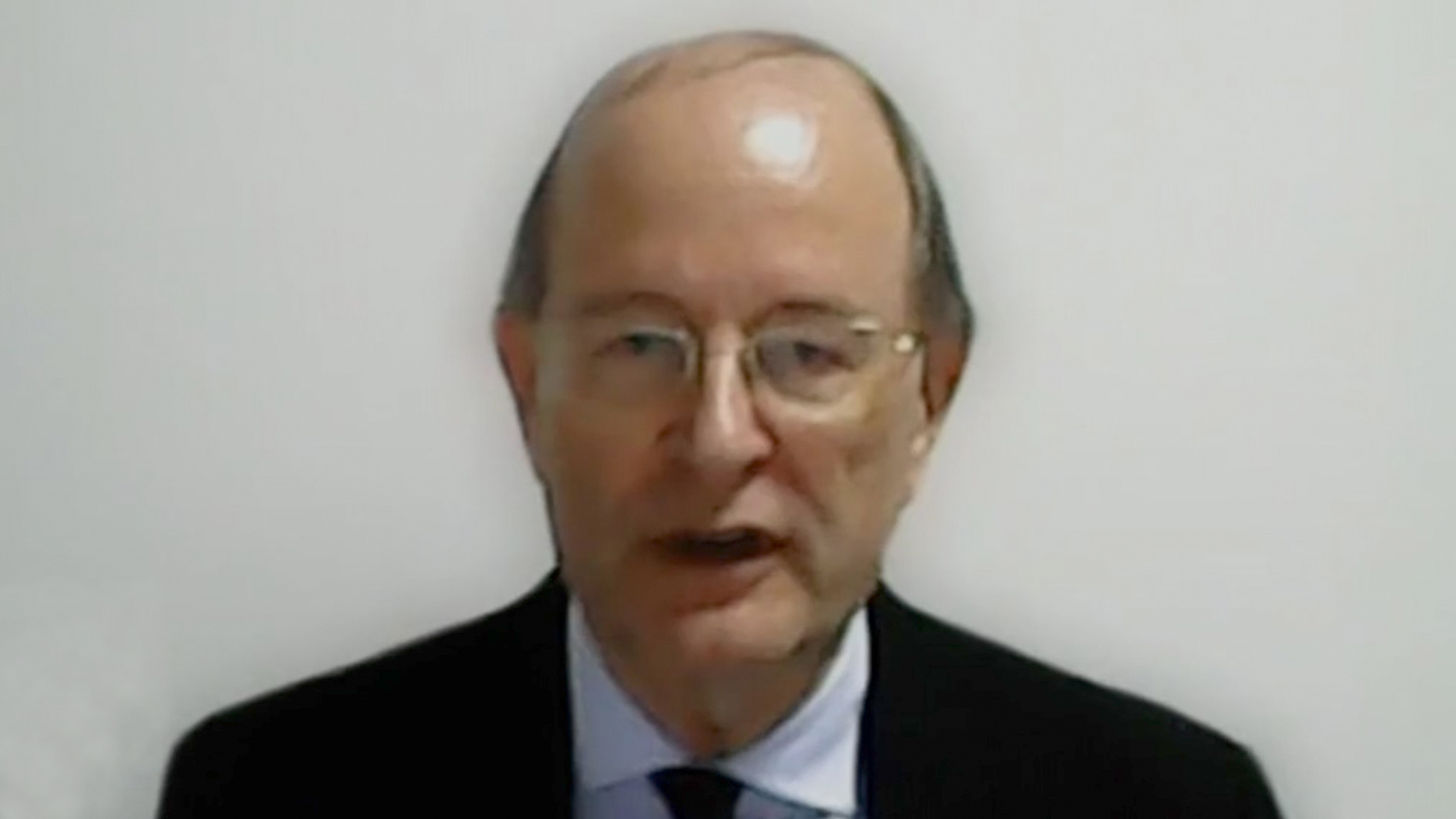
TV Show
17:34, 09-Jun-2019
Theresa May's resignation: What's next for the UK?
Dialogue with Yang Rui
02:46

Theresa May, who was supposed to deliver Brexit for the UK, is now set to resign as the leader of the Conservative Party on June 7. She will remain the prime minister until a successor was chosen, which will commence on Monday when all the candidates are declared.
Will May's resignation solve the Brexit problem or bring on more chaos. What happens next to the UK? Who is the candidate competing Theresa May's job?
01:21

"I think she must be remembered that she really came in at a hard time. She had the poison chalice and David Cameron had set it all up. She came in taking a button which is poisoned," said William Spiers, Chairman of the Spearhead China LTD who first started with his sympathy on Theresa May's resignation.
"To begin with, she did it well. Unfortunately, she took a lot of bad advice and went too long. She is a very nice person, but unfortunately, for politicians, she had to be little more threatening to her partners in the cabinet."
Feng Zhongping, Vice President of China Institute of Contemporary International Relations believed that May will be remembered as a Brexit Prime minister who had failed to deliver the job.
As to the important comparison between the national and public interests, William supports the latter by saying, "you don't have a national interest and public interest comes after."
William also made further comment on Theresa May's lack of conviction, "you should never start on softer deals when you do any kind of negotiations. Both Theresa May and Phillip Hammond are remainders. She was doing something she didn't like to do, and that is a big problem."
Feng explained that as the vital question of "to leave or to stay" concerns every UK citizen and other countries' interest, it would be irresponsible to make the decision based on the result of the referendum.
As to whether the potential successor will find concession in the parliament, Professor Thom Brooks, Dean and Chair of Law and Government at Durham University said, "he or she will have a very difficult time, a number of candidates for Conservative Party who advocates the hard Brexit which had been rejected by the parliament. Unless there is a general election that changes the composition of the parliament, or it is difficult to see the Democratic Unionist Party agree with the hard Brexit."
"As Churchill said, democracy is the worst system except for all the rest, a second vote is the worst exception for all other options," Brooks continued.
02:04

Professor Martin Lockett, Dean of Faculty of Business at Nottingham University Business School China, expressed his thought on the next UK prime minister.
"The outcome of that would potentially be a very clear choice between a hard Brexit, possibly with no deal at all, or stay in," Martin said.
Concerns were raised about the UK's relationships with the U.S. if Boris Johnson were to take the office.
"It would be very complicated. President Trump believes in America first. U.S. and EU now have a bad relationship. The EU prefers multilateralism while the U.S. upholds the unilateralism." Feng said.
Professor Brooks pointed out that, Trump and Johnson both have a similar style, and they are both New Yorkers, which could be part of the reasons that Trump backed Boris Johnson publicly. However, on the EU side, Boris Johnson has been a very controversial and not welcomed figure.
Professor Lockett also highlighted the potential referendum in Scotland.
"If the UK were to leave the EU, there will be strong pressure in Scotland for a referendum to stay in the EU as a separate state. That would imply a breakup or a partial breakup of the UK, which would be a very negative development and have consequences."
(If you want to contribute and have specific expertise, please contact us at opinions@cgtn.com)

SITEMAP
Copyright © 2018 CGTN. Beijing ICP prepared NO.16065310-3
Copyright © 2018 CGTN. Beijing ICP prepared NO.16065310-3